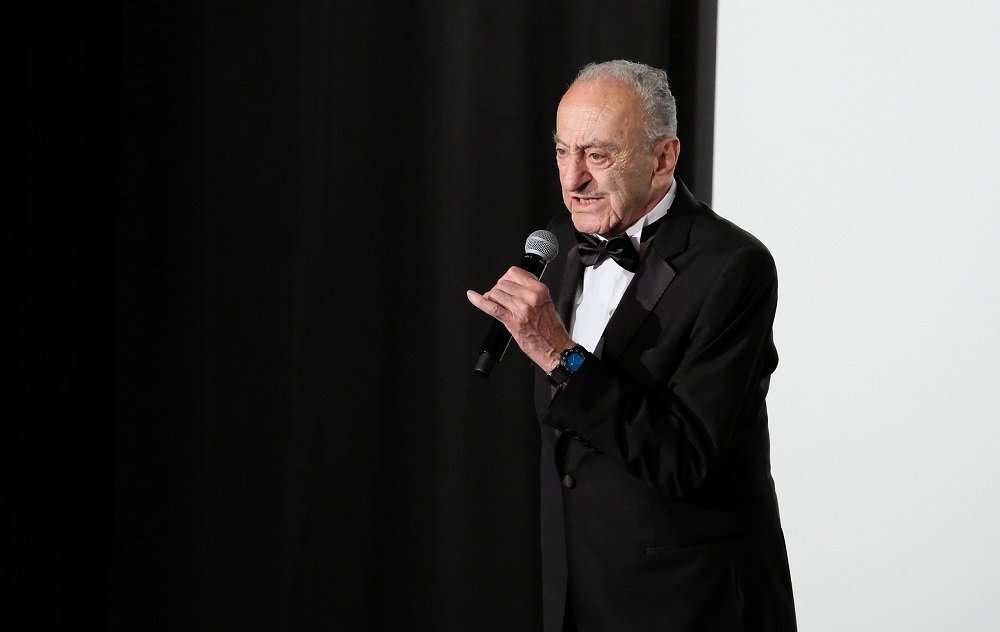Beirut – Sixty years after first presenting his film, “Towards the Unknown” (“Ila Ayn?”) at the 70th Cannes Film Festival, the “father of Lebanese cinema” Georges Nasser, 90, once again walked the red carpet on Thursday.
In emotional scenes, the crowd at the red carpet gave him a minutes-long standing ovation where the director’s film was being presented at the Cannes Classics portion of the festival.
At the screening, Nasser addressed the gatherers, saying that this film “put Lebanon on the map of world cinema.”
It was the first Lebanese film to be presented at any international festival.
He added: “When I completed the movie, we did not have professional actors or technicians. I had to resort to a smith to produce the camera rail and a carpenter to produce the camera wagon.”
“Lebanese cinema did not exist at the time. We were its pioneers,” he said.
Asked by festival director Thierry Fremaux if he has ever watched the movie again since 1957, Nasser replied: “There is this one silent scene that focuses on an image. My eyes tear up whenever I watch it.”
Fremaux said at the screening: “The difference between this film and the two others that were screened at Cannes Classics is that the director of this movies is here to present it.”
He spoke about a documentary, directed by Antoine Waked and Badei Masaad, that was made about Nasser, saying that it highlighted an “unknown period of world cinema.”
“This film proves that Lebanese cinema does not only go back to 20 years, but was launched long before then,” said Fremaux.
A new restored version of “Towards the Unknown” was shown at Cannes. The restoring process was made possible through an initiative of ِAbbout Productions and the Lebanese Cinema Foundation (Fondation Liban Cinema).
Miriam Sassine of Abbout Productions said at Cannes: “Given the rise of the young Lebanese cinema today, it is good to go back to our roots and show that Lebanese cinema started a long time ago.”
“It is important to honor those who launched it at a time when cinema did not exist in the country.”
Abbout Productions and the Lebanese Cinema Foundation had described Nasser’s movie as “a national treasure.” They chose to remaster it to preserve it and allow future generations to watch it.
